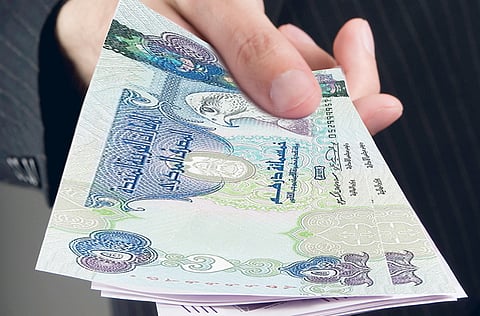Best time to borrow? Some UAE banks temporarily cut loan interest rates
Best time to borrow? Certain UAE banks slash rates to stimulate borrowing, increase asset base

Dubai: If you’re strapped for cash to pay for household bills, education fees or housing mortgage back home, now may be a good time to secure a loan in the UAE - but you must hurry.
A few lenders have temporarily lowered interest rates on personal loans in an effort to stimulate borrowing.
One bank announced last week its “personal finance sale,” offering UAE residents a chance to borrow money at less than 3 per cent annual interest.
The attractive rates, however, are being offered at a very limited period and soon, borrowers may find it more difficult to secure cheaper financing.
The US Federal Reserve has recently increased its benchmark rate, a move that is likely to make interest rates for car loans, personal loans, credit card balances and mortgages more expensive over the longer term.
Emirates Islamic said last week it was offering a flat rate of 2.79 per cent for those looking to get a new personal loan.
Customers were also enticed to benefit from higher financing amounts and payment holidays of up to two months. The offer, however, expired on Sunday.
Other lenders still have similar ongoing campaigns, though. Souqalmal.com’s website showed that ADNIF Personal Finance and United Arab Bank have advertised below market rates at 2.85 per cent and 2.19 per cent, respectively, for salary transfer loans.
Most financial institutions, however, are offering much higher annual charges, between 3.17 per cent and 10.87 per cent for salary loans.
“Some banks are offering personal loans below market rates, especially to salaried class temporarily to increase their asset base. This could be to entice customers seeking personal financing/loans, who have been holding back their spending amid economic uncertainty,” said Raghu Mandagolathur, senior vice president for research at Kuwait Financial Centre (Markaz)
Rate spike seen later this year
He noted that borrowing costs are still bound to increase this year.
“The UAE central bank raised key interest rates by 25bps from 1.5 per cent to 1.75 per cent, following the US Fed hike in March, 2017.
In the recent months, UAE interbank rates have inched northwards, one-year Eibor has rose to 2.22 per cent from 2.12 per cent, amid US Fed meet on April 26.”
Emirates interbank offered rate (Eibor) is the amount that banks charge when lending money to each other.
“We believe the trajectory of interest rates is upwards and in line with that, UAE banks would increase the rates that they charge for personal loans too,” Mandagolathur added.
Sign up for the Daily Briefing
Get the latest news and updates straight to your inbox



